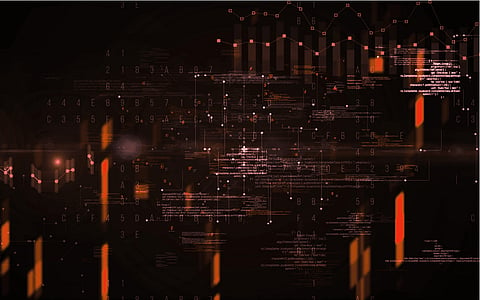

The global quantum computing market is expected to reach US$1.3 billion by 2027 at a CAGR of 52.9% from 2022 to 2027.
Quantum Computing is in the nascent stage, yet this technology is a game-changer in the technological revolution. With its advanced computing skills, countries and tech organizations compete to take the sword of Quantum Supremacy. As the heavy investments are made in the research and development of this technology, while chalking out various methods to understand the potential of quantum computing, software developers are rendered to face some of the major challenges associated with this technology.
The report by BCC Research states that The global quantum computing market is expected to reach US$1.3 billion by 2027 at a CAGR of 52.9% from 2022 to 2027 and US$161 million by the year 2022, with a CAGR of 37.3% between 2017-2022.
In its fourth annual conference Quantum Challenge, IBM constituted four major exercises that would help the classic software developers, researchers, and even business owners to understand the aspect of quantum programming. In the four day event, 18 IBM Quantum systems on IBM were utilized by more than 1000 participants from 45 different countries to understand the tenants of Quantum Computing.
Abe Afsaw, Global Lead, Quantum Education, and Open Science IBM, in an interview, elucidate the challenges faced by software developers with programming the Quantum Systems and solutions for how to avoid them. In this article, we will observe the key points cited by Abe to counter these challenges.
Unlike the traditional computing systems, which already have an established circuit, Quantum systems require creating a quantum circuit for easy computation. This is the first exercise, which Abe says will help in understanding the protocol of Quantum programming. The Quantum circuit involves putting on quantum gates on different qubits.
The terminologies of Quantum programming are fairly different from Classical computing. It involves understanding new processes, strictly associated with Quantum programming, with no reference to the traditional computing model. For the traditional software developer, who anticipates learning Quantum programming, understanding these terminologies and processes, without any detailed source of information becomes a challenge. To counter this and help the software developers to gain knowledge about Quantum computing Abe informed that IBM has released an open-source textbook, which involves learning material and exercises for solving the problem.
Unlike classical computing algorithms, quantum programs have three rules for the algorithm that makes them different from traditional computing. Abe describes the first rule to be the presence of quantum noise that can alter the desired outcomes. Quantum noise is the disturbance produced while the Quantum circuit is made to run on the Quantum Systems. The classical system measures the communication and produces the desired outcome by measuring the running the same programs repeatedly to take a vote and understand what the user is trying to communicate. This is called as 'Standard Error Mitigation Technique.'
However, in quantum programming, repeated communication can destroy the information, and can give online one particular outcome instead of the large Superposition of states for accessibility of the Quantum state. That's why Abe emphasizes that the error mitigation techniques of quantum computing are different from that of classical computing and involves rules for formulating Quantum Algorithms.
The two hardest parts while working on quantum programming is that the measurements are different from the real system and that the principles of quantum mechanics are different from that of the traditional computing applications. In Quantum programming, Superposition plays a key role. Abe describes Superposition as the ability of Quantum programming to take a quantum state and have it become a combination of different basis states to have interference between quantum states and to have entanglement between quantum systems.
For making Quantum Computing effective in everyday life, Abe rules out applying Quantum key distribution so that that different quantum states can be measured, and quantum communication is secure. The earliest protocol for key distribution, as described by Abe is BB84, where B and B stand for Charles Bennett and Bassard, who developed this protocol in 1984.
This protocol involves the sharing of information from point A to B, with eavesdroppers in the middle, who are named as Alice and Bob. The main idea behind this protocol is taking advantage of the quantum mechanics for identifying the interference in the communication network of Quantum programming.
A quantum system is heavily governed by Quantum circuits, which involves a series of operations applied to the qubits in the quantum program. Each circuit has a matrix, which corresponds to the series of operations that are applied. But the hardest part, as observed by Abe in such type of approach, is that the matrix is vast, making it challenging to identify the circuit over which the matrix is generated. Hence to rectify this, the small matrix must be utilized by the software developers with an assortment of solutions, with a deep understanding of things.
By formulating different solutions, the chances of learning are very high.
The future of different sectors looks promising with quantum computing, according to Abe. However, as the technology is still evolving, it will take years for its proper utilization in the large stage. For software developers to counter the challenges of Quantum programming, it becomes imperative to understand the tenants and terminologies of Quantum Computing and look for solutions that can be applied in quantum computing.
Join our WhatsApp Channel to get the latest news, exclusives and videos on WhatsApp
_____________
Disclaimer: Analytics Insight does not provide financial advice or guidance. Also note that the cryptocurrencies mentioned/listed on the website could potentially be scams, i.e. designed to induce you to invest financial resources that may be lost forever and not be recoverable once investments are made. You are responsible for conducting your own research (DYOR) before making any investments. Read more here.
